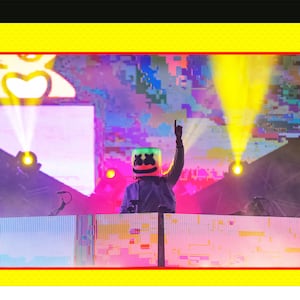In March, after the city of Miami forced Ultra Music Festival to cancel its annual EDM fest over the outbreak of COVID-19, the company sent an email to ticket holders titled “ULTRA MIAMI RESCHEDULED.” The lengthy message, published in the Miami Herald, spent several hundred words on the company’s rationale, their commitment to public safety, and their “dedication, passion, and pure love” of electronic music. But a key word was missing: refund.
As COVID-19 closed live events across the country, many major festivals and ticket providers began issuing refunds to their would-be attendees. Ultra, a multi-million dollar global corporation that hosts festivals in 29 different countries, went a different route. Instead of returning the money, the festival offered to roll the tickets over to 2021 or 2022, and a dubious “Benefits” package, which included an “Extra Ultra Hour” (i.e. a DJ set at the next festival for 2020 guests), one free ticket to another event, and a discount on merchandise.
The policy sent EDM-heads, who shelled out between $299.95 and $1499.95 per ticket, spiraling. On r/UMF, the music festival’s subreddit where squabbles tend to max out at pool party etiquette, conversation took a sharp turn into class-action lawsuits, the legalities of bank chargebacks, and the particulars of regional consumer protection law.
One user, u/What_Happened_Here, started a Google Form for people interested in pursuing class-action. Others began tracking other festivals getting mobbed by lawsuits, and combing Florida contract law for statutes to exploit. “Talking to lawyers right now,” user u/javiergame4 wrote in one lawsuit thread. “Can someone send me any documentation of fraud, any proof to fight this ? It seems I got one law firm interested in this case. I need all supporting evidence. I need evidence like terms and conditions changed, etc. let’s fight them guys.”
Another poster, u/affyerheid, who identified himself as a U.K. health-care worker named Craig, told the Daily Beast he had planned to attend Ultra for his first trip to the United States and his first vacation in over 16 years. (Craig declined to disclose his last name). When the festival was cancelled, he sought legal assistance. But the attorney, Craig said, advised him that class action was not a legal route he could pursue in the U.K. When he and his partner attempted to initiate a chargeback, Ultra challenged it (he wasn’t alone). After several emails to Ultra went unanswered, Craig accepted their “Benefits.”
“It’s an upsell opportunity, that’s all,” Craig said. “Nothing about it in any way helps the average person who’s probably struggling to pay rent right now, let alone thinking about a fucking music festival in a year’s time. My job is, obviously, immensely difficult at the moment. I’m a frontline worker, and having my $1,000 odd back is the difference between maybe keeping my home for another month whilst my partner, who’s been furloughed as part of our government’s social isolation rules, waits to go back to work.”
Ultra did not respond to requests for comment, but the festival’s Terms and Conditions specify its policies on refunds, bank chargebacks, and legal action. The legalese, which has been close-read like a college assignment on the subreddit, claims that Ultra has no obligation to issue a refund if an event is postponed. If an event is cancelled, the statement says, they may issue a full or partial refund, postpone the event, or offer a comparable “make good” at their discretion. Under no conditions, however, is the buyer allowed to commence a chargeback. Most brazenly, the agreement also insists that upon purchase, the buyer “gives up their right to go to court in connection with any dispute.”
The legality of those claims is up for debate, at least among the EDM guys. They have pointed out that chargebacks are broadly protected by the Truth in Lending Act, a federal bill that protects against unfair billing practices, regardless of Terms of Service clauses. They found precedent for lawsuits that overturned clauses against legal action––specifically, the 2017 class-action suit against PayPal. And the more conspiratorial minded Redditors pointed out that Ultra changed their Terms and Conditions sometime between last year’s festival and this year’s cancellation. A screenshot of the agreement as of March 31, 2019, archived on the Wayback Machine, reveals the company overhauled the fine print to include, among other changes, new language regarding refunds and chargebacks, as well as new clauses––on the ability to change their Terms and Conditions without notifying customers.
Sunday night, a user posted a photo of a pink Yu-Gi-Oh card on the subreddit captioned “If Ultra was a Yu-Gi-Oh card…” The card lists its type as “Trap Card,” and features Ultra’s logo as its illustration. Below, the description reads: “When this card is activated, this card will take all of your money and not issue you refunds.”


